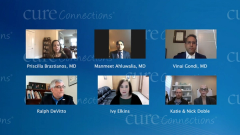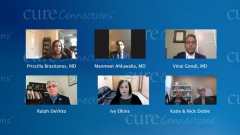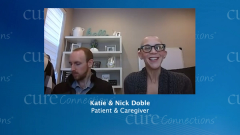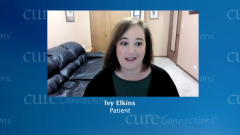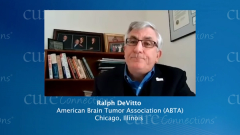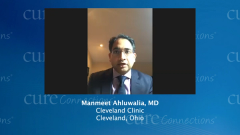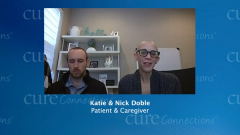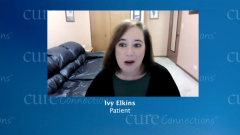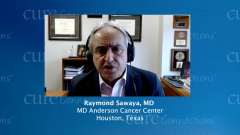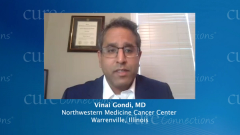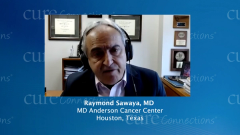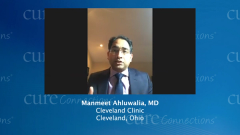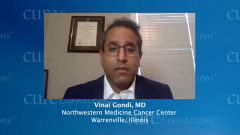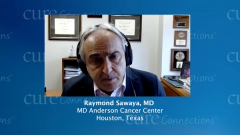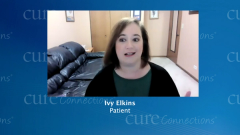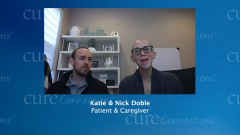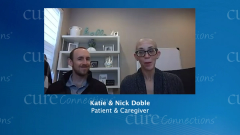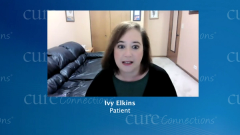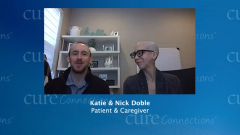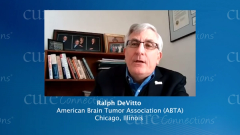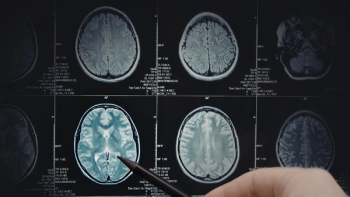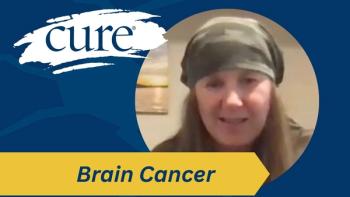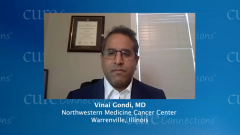
A Caregiver’s Perspective on Treatment Success
Episodes in this series

Priscilla Brastianos, MD: How do you define treatment success for Katie?
Nick Doble: It’s a good question. I was thinking about that as I heard Ivy and Katie talking. I think one of the things that she talks about is living to old age, and she has a number, 89, that is like a targeted area for her. I think for us, to be able to enjoy our life and live our life. I’d love to grow old together. If we can do a treatment and get back to the closest sense of normality and to be able to, as Katie said, go traveling and see friends and family and enjoy our lives, I think that’s the most important thing for me and for us.
Priscilla Brastianos, MD: Another question for you. What are your thoughts or feelings when Katie does enroll in clinical trials?
Nick Doble: I do feel that I’m part of the decision-making. Like the TIL [tumor-infiltrating lymphocyte] therapy, we did have a pamphlet for that, and I read through what the situation was with that. We had a couple of options before going into this clinical trial, one of them, embolization, which we’d done, and then TIL. And the doctor explained what the tools in the tool belt were to help, to a reference earlier on. I felt part of the decision-making and confident about the treatment options. I think clinical trials are very good for patients. As Katie explained earlier, the initial treatment option that we were offered right back when the cancer had metastasized wasn’t the best option. Clinical trials, if we could do something new that might have a huge impact on this type of cancer and prove successful for her, is very much something that I would advocate for.
Katie Doble: I think this last treatment had the most disruption on Nick’s life of all of the treatments that I’ve had, because we bought a one-way ticket to Pittsburgh, Pennsylvania, at the beginning of September, and we didn’t know when we were coming home. We spent the whole summer, we’d go on walks with our dog every day, and we would talk about, “What does that look like for you, what does that look like for me?” There were a lot of logistics. We found an Airbnb, and Nick stayed there. We had a friend of a friend who lived in town, who lent him a monitor so he was able to set up and work, so that it wouldn’t disrupt his work. We found a chef who would deliver about four or five meals a week, so that he could pop those in the oven and not have to cook but eat a healthier meal than eating out every meal, so that he could get to the hospital every night and visit me before visiting hours ended. That trip was as much of an impact on me as it was on him, and he has always been so supportive and takes it as it comes and never complains.
Nick Doble: As a caregiver, if I can avoid FMLA [taking unpaid leave through the Family and Medical Leave Act], that’s the biggest success, to be able to continue my life while supporting Katie in Pittsburgh. That was starting work at 10 am for the times that we were here, working through to 6:30 pm, chucking food into the oven, and then straight to the hospital after I’d scarfed it down, basically. Whatever I could do to try to live a normal life for myself and for her, allows me to be the best caregiver I can be for her, too.
Priscilla Brastianos, MD: That’s incredible, Nick. It sounds like you’re such an amazing support for Katie.
Transcript Edited for Clarity

